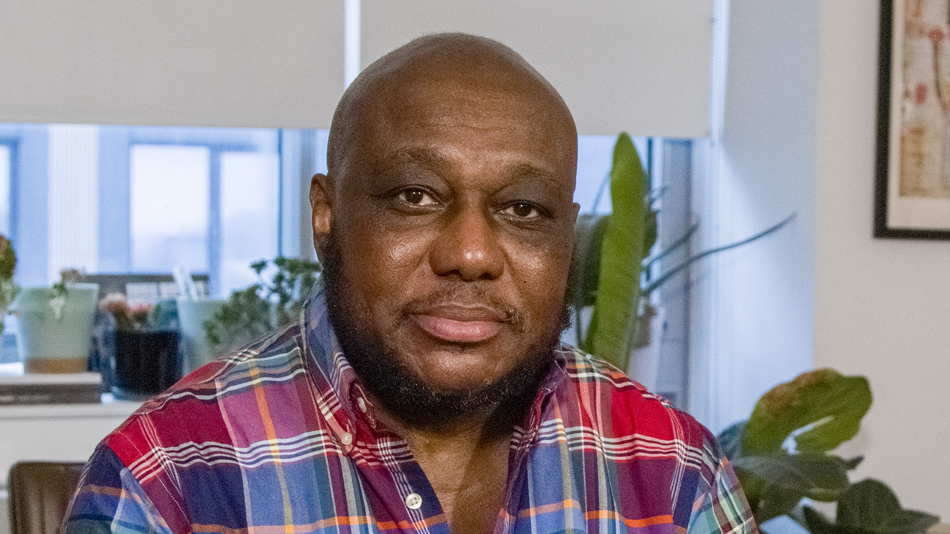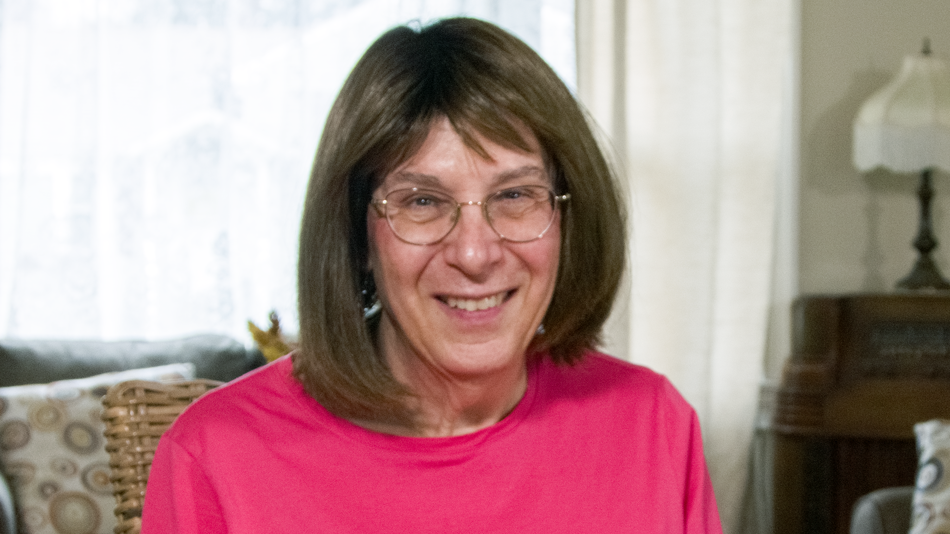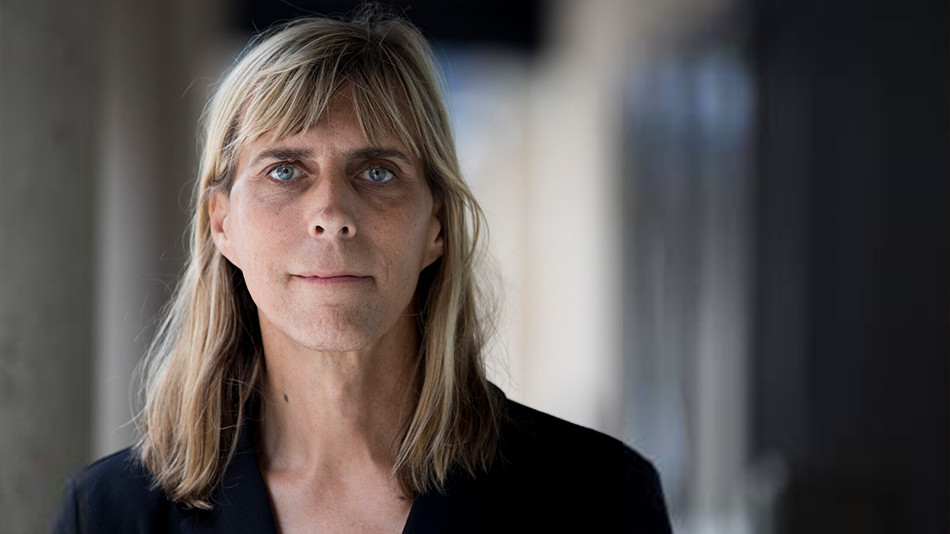I’m Jendi Reiter and I’m from New York City.
I grew up in the lower East side of Manhattan in the 1970s with two moms. My biological mom was very femme and kind of ashamed and uncomfortable with the butchness of her partner, and it was really important to her that I perform upperclass femininity to rise out of any sort of… any sort of butch or coarseness that she associated with masculinity in women.
My bio mom has a lot of mental – had a lot of mental health problems and was abusive to both of us. So that was the life that I lived, being very femme and trying to find a husband, which I did. I married a wonderful guy. Right after 9/11, we moved out of New York City to Northampton, Western Massachusetts.
I was writing a novel about a gay man, Julian, the protagonist of my first novel, Two Natures, which I started writing… I think about 2008, he was living the life that felt like the life of my soul, and it wasn’t the life of my actual surroundings.
At the same time, Adam, that’s my husband, and I were, were trying to start a family. I didn’t really know the term gender dysphoria, but I was definitely experiencing it, thinking about pregnancy. We were still in very close contact with my abusive mom who was very engulfing. So I assumed all my negative feelings about motherhood and pregnancy were just because I associated motherhood with this enmeshed invasive relationship.
So I was really floundering around and through all of that, Julian was my lifeline. My life, my selfhood, my authenticity felt more invested in this character, but it was also a body that I could inhabit that was freer and more individuated than the body that I felt I was living in.
So we got involved in the adoption process. This was like the first gendered thing that I’d really had to do in my adult life, and I was quite surprised and dismayed how sexist the adoption agents – adoption industry can be. They assumed that I would be the one who would take off work, even though we both have the exact same job working for our, our business together.
You know, I was saying to Adam, my husband, like, I wanna be a parent, not a mother. And then here’s Julian, my novel character who is happy being a man and is comfortable with his sexuality and is not afraid of connecting with other people.
So we were very lucky. We finally found a really wonderful adoption provider in California. So in 2012, we adopted Shane, who’s 13 now. You know, the first couple of years you just try and keep your head above water and get enough sleep. I continued to work on Julian’s book and got published in 2016.
During that time, like as part of the research process and the promotion process, I started spending a lot more time in queer spaces. I went to the Transcending Boundaries Conference, which was a transgender conference that used to be held down in Springfield. I met this wonderful guy who was a minister, one of the first trans men I’d ever met in general because in Northampton, I’d mostly met trans women. And we did this exercise where we had to walk across a room as the gender that we were in. And then for the next few minutes as, like, sort of a liminal gender space. And then for the last few minutes as any other gender that we might choose.
I pictured and felt and embodied this guy. He looked… well a little bit like I do now, except he had hair. I felt this incredible congruence and empowerment and sort of wholeness walking across this room in this meditative exercise as this man.
I felt this incredible congruence and empowerment and sort of wholeness.
In 2016, there was the Pulse nightclub shooting, the hate crime against the queer folks in the nightclub. There are a lot of people who are coming out in solidarity or putting stuff on their social media. After we’d finally had our child and didn’t feel like we were under a microscope anymore, there were a lot of things I started to come out of the closet about, like the first thing was I came out of the closet about being an abuse survivor. So that was the first thing. And then coming out as non-binary was the second thing.
That just seemed like I was gonna have to go and identify as non-binary and maybe change how I dressed a little bit. But maybe that was as far as it was going to go.
You know, at the same time, our son is just like a straight up-down the middle boy’s boy. As you can see from the background here, I still love dolls. I love pink. So these are all things that made me wonder, what is masculinity? And if I was gonna be a man, is there a kind of man that I could be?
I continued to have gender feelings, you know, as my son grew up in elementary school and I worked on the second book and came into contact with queer people and got a gender therapist and kind of boiled the frog slowly.
You know, like, “Adam, I think I wanna microdose testosterone.” “Adam, it’s costing, you know, $300 a bottle. Maybe I just take the shots instead, you know?”
And then COVID happened and I got tired of looking at my breasts on Zoom. And I just, you know, I was taking T and the world didn’t come to an end. We finally as a couple, came to the decision and that I’d be happier… it was okay to get top surgery in 2023. And the world hasn’t come to an end. Like we’ve adapted.
So people always ask me, how has this affected your kid? And I have to say, I don’t really think that it has affected him. You know, sometimes he called me mommy-man, which I love. So that makes me feel very affirmed. Like he sees me as a guy and we’ll call each other dude and bro. He’s very adaptable to that. So I don’t think it’s traumatized him or really affected him very much that I transitioned.
I think the fact that I’m happier and more authentic has made me more present as a parent. I don’t feel shame or, or self-doubt about my parenting because it isn’t female enough, you know? I can nurture him as a parent who’s a man. Remember that what’s good for – what’s not good for you is not gonna be good for your kid. And that taking care of yourself and being your own person is also gonna be good for your kid.








Share